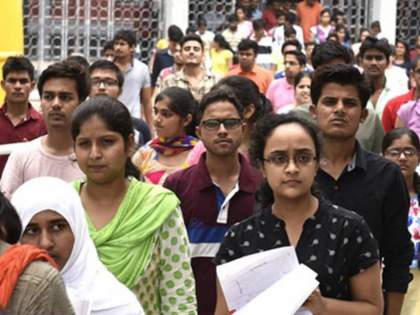Goa is abuzz with excitement as vintage bike and car owners, users, collectors and fans are decking […]

WHY DO GOANS FAIL-GPSC?
Jan 28- Feb 03 2023 January 27, 2023NOT QUALIFIED: The majority of Goan students who apply for junior civil service officers post do not have the knowledge to pass the test.
By Rajan Narayan.
Over 90% of the candidates who applied for grade II & I jobs advertised by the Goa Public Service Commission fail to pass the rigorous testing procedures. The GPSC has enabled only 30 junior civil service officers eligible for jobs of mamlatdar, vigilance commissioners, excise commissioners. May be we need a Kota-type coaching class for Goan candidates!
THE backbone of the administration is the junior and senior officers of the Goan Public Service. They are equivalent to their counterpart in their Indian Administrative Service (IAS) and the other central services. It is the officers of the Goa Civil Service who affect the lives of the ordinary citizens the most. Every Goans wants to become a government servant. Several thousand if not lakh Goans also want to become officers of the Goa Public Service.
The problem is that unlike Class III (lower division clerk, upper division clerk) and Class IV staff, recruitment to Goa Public Service Commission (GPSC) for the junior officers is conducted by an autonomous body. So much so that unlike Class III and Class II jobs which can be bought from the market like lady’s finger or brinjal for the right price, candidates appearing for the GPSC exams Grade I & II jobs are chosen strictly by merit.
Unfortunately, over 90% of the candidates who apply for the Grade I and Grade II categories of the GPSC exams fail to pass the very strict examination procedures. This include in initial screening to bring down the numbers of candidates from lakh to thousand. A written examination to further reduce it to a few hundred and finally interviews to decide the final list of eligible candidates.
The Goa Public Service Commission shared by Jose Manuel Noronha admitted recently that with very great difficulty the GPSC had succeeded in finding 30 Goan candidates for critical posts such as mamlatdars, vigilance officers, accountants, etc. These 30 include the half-a-dozen candidates who were selected against the result categories of other backward classes, schedule castes and tribes.
15 YEARS DOMICILE
THERE is a tendency in Goa for every eligible Goan who has been in domicile of at least 15 years to apply for government jobs, even if they have reasonably paid private jobs. This is partly because most private jobs in the state are on a contractual basis. Even jobs in the so called leading newspaper in the world, “The Times of India” (Goa Edition) are on a contract basis. This includes not only the industrial units in Verna and other industrial estates, but even in medium and small scale industries.
The attraction of government jobs is that they offer total security. Government jobs are for a lifetime till you retired. Even if you don’t really work or engage in wholesale acts of corruption you can be assured that you will not be sacked. Government salaries cut back to the standards of industry in Goa are competitive if not excellent. A newly recruited nurse in the Goa Medical College & Hospital earns a minimal Rs60,000 pm against the Rs10,000 to Rs15,000 or less paid in private hospitals.
Engineers who pass out of the half-a-dozen engineering colleges in Goa can expect to get only a maximum of Rs20,000 as salary whereas junior engineer in the Public Works Department or the Electricity Department get a minimum take home salary of Rs60,000 pm, plus. Unlike in other major cities where there are mega factories offering competitive wages, in Goa no qualified technical person is willing to take over the jobs as the salary is not commensurate to qualification.
THE IRONY
WHY is that despite Goans being desperate to get government jobs so few of them managed to pass the strict Goa Public Service exams for Grade I & II? The irony is that the majority of the candidates who apply for the jobs of mamlatdar are very responsible jobs providing for promotion to collect from the entire district. Even now this is what a mamlatdar does. A couple of candidates who had repeatedly failed the GPSC exam for mamalatdar had come to see me with their parents. I asked them what mamalatdar do? They replied that the primary function of the mamalatdar was to issue the residency certificate.
They were not even aware that the mamalatdar is the key figure in the revenue administration. The most important responsibility of the mamalatdar is to facilitate the conversion of land owned by the bhatkar to tenants or mundkars. This is done by a mutation process whereby the tenants or mundkars purchase the land they were tilling or occupying at a nominal price. This was the corollary of the Tenancy & Mundkar Act initiative by the first chief minister of Goa, Bhausaheb Dayanand Bandodkar passed by the legislative assembly of Goa when his daughter Sashikala Kakodkar was chief minister.
It may perhaps may relevant to mention the revenue minister, Pratapsingh Raoji Rane, very cleverly excluded the taluka of Sattari and Pernem from the implementation of the Tenancy & Mundkar Act. Even as of today the residents of Pernem, where the land is owned by the heirs of Jitendra Deshprabhu, and Sattari where Pratapsingh Rane is the king, they have no ownership rights to the land. The land owned by Rane and Deshprabhu have not been transferred to original tenants and mundkar.
WHAT IS OPINION POLL?
BESIDES ignorance of the nature of the job they have applied for most Goan candidates do not even have adequate general knowledge. The majority of those under 30 years or even 40 years are not even aware of the Opinion Poll and when it took place for what reason. They are ignorant of the Liberation of Goa and its details. Or when statehood was conferred on Goa and Konkani made the official language.
For several senior jobs such as mamalatdar, vigilance officer, excise commissioner (now GST) you need to have knowledge of the laws. This is because of the Uniform Civil Code. Most candidates are not aware of the provisions of the UCC which provided upon death the property to be awarded to living spouse and rest equally to the heirs both men and women. The civil code stipulates that inventory proceedings should be conducted to value various properties on the demise of parents and all heirs get equal share.
All this is the job of the mamalatdar who are supervised by deputy collectors and collector. In the case of applications for jobs of excise commissioners, few of the candidates even know that the state and country have switched from excise duty and sales tax to a combined general sales tax. The logic behind this was that tax should be only at the end point of the manufacturing process and should not be taxed at intermediate state.
For example, in the past in the case of automobiles the manufacturer had to pay separate excise of sales tax on tyres and tubes, brakes, gears, seats, airbags meant to protect passengers in the event of accidents. Under GST taxes are levied at the final purchase point when you buy the car. The automobile companies get input credit which means that they are compensated for all the taxes they may have paid for components and accessories at various stages of the manufacturing process.
So much so any Goan candidates who apply for excise jobs have to be at least familiar with the new GST rules, and update themselves as the rates of taxation on various categories keep changing.
We have literally hundreds if not thousands of coaching classes for the joint entrance exam for IIT. The township of Kota in Rajasthan is one big mugging class for these exams. Even in Goa, Mustifund and Demphe colleges have coaching classes for JEE and NET. Unfortunately, there are no coaching classes for Goan candidates who want to apply for jobs advertised by the Goa Public Service Commission.
GOAN HISTORY?
DON’T get me wrong. I am not suggesting the Kota parrot model of classes for candidates who apply for posts of junior and senior officials of the Goa Public Service. But I do believe that there should be institutions which tutor and provide candidates with general knowledge of Goan history. The departments of the government of Goa and the responsibilities linked to the various jobs advertised by the Goa Public Service Commission. We would be delighted to take initiatives in co-operation with the retired Goa Civil Service Commission to ensure that all the Grade I and Grade II posts advertised by the GPSC find qualified Goan candidates.















